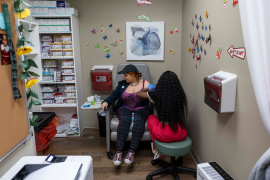The number of accountable care organizations (ACOs) has grown rapidly as part of the nationwide effort to improve health outcomes and reduce cost. And ACOs’ shared savings arrangements, in which providers and payers share savings derived from providing coordinated care, are becoming more sophisticated. A recent Commonwealth Fund–supported technical brief from the Center for Health Care Strategies finds many state Medicaid agencies are using the Medicare Shared Savings Program (MSSP) established under the Affordable Care Act a model for their shared saving arrangements.
These Medicaid agencies are adjusting the program to meet the needs of their low-income populations and work with their existing initiatives. For example, Medicaid ACOs can choose one or both of the shared savings models offered by the MSSP: a one-sided model that pays the ACO a percentage of cost savings achieved relative to a benchmark or a two-sided model that adds the potential for the ACO to pay a percentage of any cost increases, relative to a benchmark.
The brief explores the shared savings approaches of Minnesota and New Jersey, which both used MSSP as a foundation for their Medicaid ACO programs. See this downloadable comparison of MSSP with Minnesota and New Jersey’s approaches for more information. And visit chcs.org for the complete brief.



